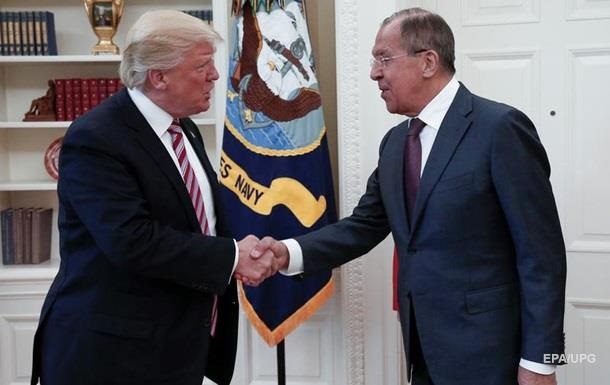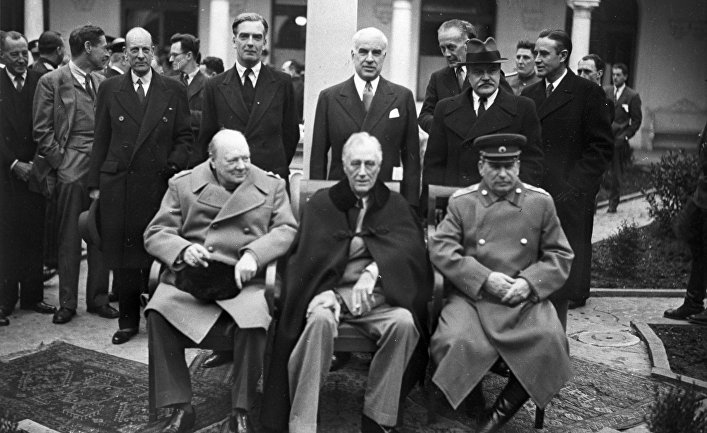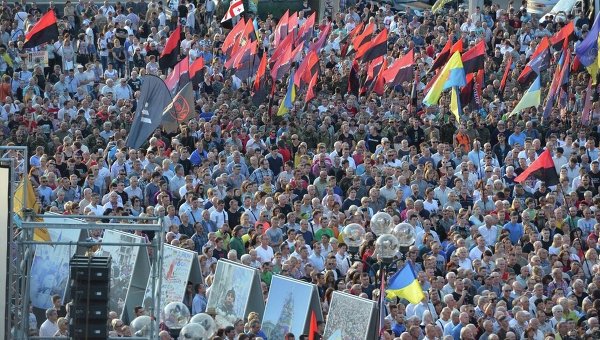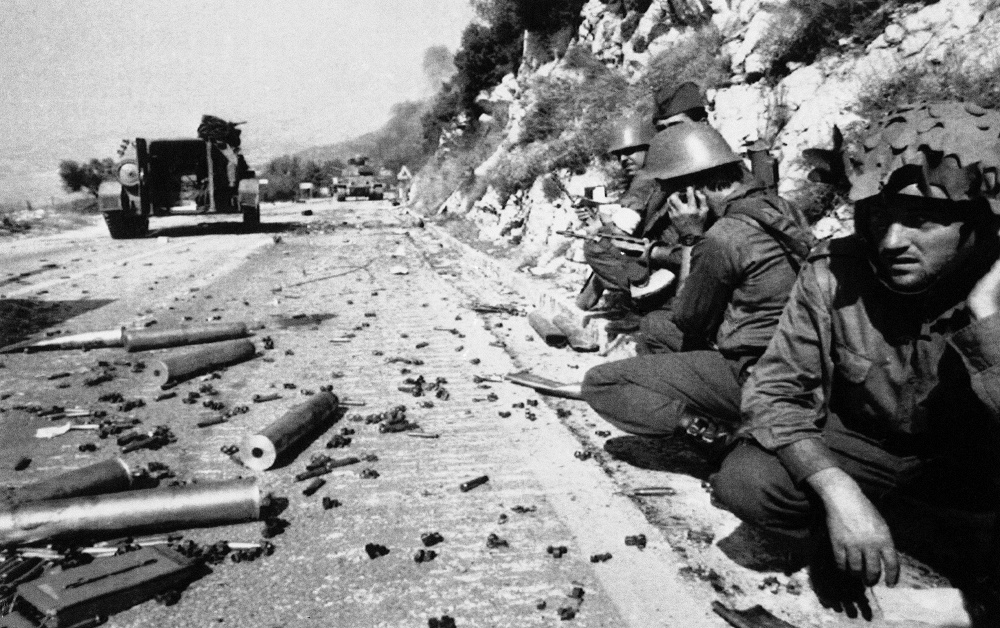The events of recent years have once again confirmed how important the US-Russian dialogue and cooperation between the two powers in seeking answers to the challenges of modern development is to the world, its security and stability. The use of chemical weapons in Syria, the Iranian nuclear program, the New START, the fight against international terrorism and cooperation in the field of space exploration are evidence of the fact that when the United States and Russia unite their efforts despite the seemingly insurmountable contradictions, the whole world benefits.
Some expectations of strengthening this trend in US-Russian relations were associated with the results of the November 2016 presidential election in the United States. But the conditions under which the pre-election race took place, and the unprecedented pressure on the new president of the United States from the opponents of, let's say, an equal dialogue with Russia, was more than an obvious demonstration of how fragile the hope for deepening US-Russian dialogue is.
On the eve of the meeting of the US president with the Russian Foreign Minister Sergey Lavrov, which was announced after a telephone conversation with Vladimir Putin, we witnessed the hard pressure to which Donald Trump was subjected.

Alexander Vershbow's article published by the Atlantic Council was a good example of it. The Atlantic Council is an American think tank that positions itself as a non-governmental organization. But it's enough to name a few names that collaborated and continue to cooperate with the center of representatives of the American establishment in different years to understand the essence of it: US Secretary of Defense Chuck Hagel, US Deputy Secretary of State Richard Holbrooke, National Security Advisor James Jones, National Security Advisor Brent Scowcroft, US Representative to the United Nations Susan Rice, etc.
Alexander Vershbow is a former US Deputy Secretary of Defense, US ambassador to NATO, US ambassador to Russia, the deputy secretary general of NATO, a well-known and knowledgeable person. Persons like him, who are provided the widest opportunities for replicating their views in the Western media, have a very serious influence on the decision-making in Washington and public opinion, and not only in the United States. The more interesting it was to get acquainted with his recommendations to Donald Trump about the prospects for US-Russian relations.
"Russia’s actions represent an assault on the international rules-based order that has been the basis for security and stability in Europe since World War II," Vershbow writes. Stop. Let me slow down here.
The international order that served as the basis for security and stability in Europe since World War II? It begs the question: what's he talking about?
Well, who has ensured security and stability in Europe since World War II? It was the Yalta-Potsdam system, wasn't it?
And who actively contributed to its dismantling? That's the US, wasn't it? Why was NATO not dissolved in response to the dissolution of the Warsaw Treaty Organization? Why was the organization, created in response to threats allegedly coming from the USSR, not abolished after the breakup of the Soviet Union?
Why was the promise that NATO would not expand into the East not met? After all, "gentlemen take it on trust".
Why was the potential of the CFE Treaty not realized? Instead, NATO has stepped up its military build-up near Russia's borders.
The answers to these cliche questions hide the causes of many events that concern us today. And it is no coincidence that our American colleagues avoid them, preferring to discuss consequences, but not the reasons.

Yes, indeed, regardless of how good or bad the Yalta-Potsdam system was, it has been the basis for security and stability in Europe for half a century. Its dismantling led to a real war in the very center of Europe - Yugoslavia.
Yugoslavia, which the West "nourished and cherished" in contrast to the USSR, and then cynically instigated its disintegration.
Wasn't the UN one of the central links in the world order that ensured security and stability after World War II? And who ignored Security Council resolution 1244, which provided for the preservation of the territorial integrity of Yugoslavia? That's the US, wasn't it?
Who actually destroyed a sovereign UN member state in 2003, bypassing the United Nations under the falsified pretext of the alleged existence of weapons of mass destruction in Iraq? The US and its NATO allies were behind that, weren't they?
The answers are obvious, but probably not for Mr. Vershbow.
Was it Russia's fault in the mentioned issues? For any observer capable of being objective, it is clear that it was not the fault of Russia.
Isn't that what Russia's President Vladimir Putin said in his speech at the Munich conference in 2007, calling to abandon idea of unipolar world? Speaking at the summit in Bucharest in April 2008, he warned that the world will not be safe and stable without an equal cooperation, which would consider interests of other countries, did'n he? He suggested to start forming a single European space from Lisbon to Vladivostok not in words, but in practice, didn't he?
Was he heard? No.
What did we get instead? With the actual indulgence of the US (today it is a secret for only Mr. Vershbow), Georgia unleashed a war by attacking Russian peacekeepers by making an attempt to regain control of the territories of Abkhazia and South Ossetia through a large-scale use of military force. And it got what it deserved - peace enforcement (using the Anglo-Saxon terminology) and the subsequent recognition of the independence of Abkhazia and South Ossetia.
The world has received, well, perhaps Mr. Vershbow doesn't know it as well, with the participation of the US, the 'Arab spring'. And now Northern Africa and the entire Middle East have been feverish for almost 7 years.
The tragedies in Libya, Tunisia, Egypt, Bahrain, Iraq, Yemen, Syria, the emergence of ISIS - all this happened before the events in Ukraine, Mr. Vershbow is concerned about now. And the US certainly bear responsibility for it.
Nevertheless, having such a number of "skeletons in his own closet," Mr. Vershbow says that Russia's actions destabilize the international order, and recommends Donald Trump not to agree to Russia's proposals to put aside contentious issues and join forces against ISIS.
"That would be a huge mistake. Russia’s aggression against Ukraine cannot be swept under the rug," Mr. Vershbow said, believing that it will be possible to put the relations with Moscow on a more sustainable footing only after "coping with Russia's aggression on Ukraine", forgetting about the role of the United States in everything that happened in Ukraine. Well, maybe he did not taste Nuland's cookies on the Independence Square in Kiev. Maybe he did not hear about the $5 billion mentioned by Ms. Nuland, which were sent by the US to Ukraine, so it started its "European rush". Maybe he does not know about the trampled agreement with the lawfully elected president of Ukraine Yanukovych, whose guarantor was Germany, France and Poland. Everything is just like a famous movie hero from "Gentlemen of Fortune" said: I remember this thing, but not that.

But Mr. Vershbow believes that any bargain with Russia should be contingent on "Moscow and its proxies fully implementing the Minsk agreements and restoring Ukraine’s sovereignty over the Donbass". He says that Moscow has failed to rein in its "separatist proxies", but strangely forgets to say about Kiev's daily violation of hard-won agreements. He talks about Ukrainian soldiers which continue to die, but did not say a word about the casualties among civilians in eastern Ukraine, who are dying under the continuing shelling by the Armed Forces of Ukraine. He claims the death of a US citizen, "when a separatist landmine exploded a vehicle of the civilian OSCE monitoring mission", although the official investigation of the incident has not been completed, and the available data testify to the continuing terrorist activities of subversive groups controlled by Kiev.
And then, he suggests that the Minsk agreements should be rewritten, turning them, as they say, upside down. It is no accident that he mentioned "deployment of an international peacekeeping force and civilian administration for a one or two-year transition phase."Mr. Vershbow, apparently points to his experience in the structures of NATO.
We also remind you the results of application of the above mechanisms, for example, in the territory of the former Yugoslavia. Remember the fate of the Serbian Krajina - were the NATO peacekeepers stopped by Croatian operations 'Molniya' and 'Storm', as a result of which Krajina ceased to exist? No. And what was the fate of the Serbs under the so-called civil administration in Kosovo? It was unenviable.

It is clear that such proposals are certainly unacceptable under current conditions. Then what is their purpose? They can only create new obstacles to the settlement of the situation around Donbass and Lugansk.
They do not contribute to the normalization of relations between Washington and Moscow as well, driving them into a dead end.
But maybe it is their goal? Actually, Mr. Vershbow, wishing it or not, confirms it: If Putin spurns the president’s initiative, however, the US and its allies will have no choice but to increase the pressure on Russia even further by tightening sanctions and stepping up economic and military assistance to Ukraine, including lethal defensive weapons..."
And it would be the worst possible scenario.
Still, there is a hope that the new administration in Washington will be able to withstand the pressure exerted on it.
The meeting in the Oval Office of the White House between the US President Donald Trump and the Russian Foreign Minister Sergey Lavrov was held, and, according to the parties, it was encouraging.
In the end, common sense must prevail.






